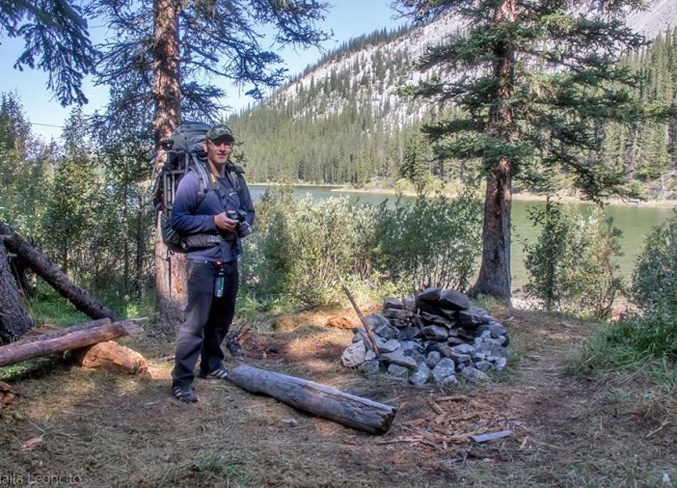A little foresight goes a long way towards ensuring an enjoyable, stress-free experience in the bush.
Having the West Country on our doorstep is a major draw for people who choose to make Sundre, or the surrounding area, their home or vacation destination.
We are unquestionably quite fortunate to be able to pack up some gear and head out onto Crown land to go camping for a weekend to relish the fresh air and spectacular vistas offered by the Rocky Mountains and their innumerable streams, creeks, rivers and lakes.
So far this summer, my better half and I have been lucky enough to enjoy two weekends out camping in the backcountry. Our first trip to Eagle Lake earlier this summer went swimmingly — literally, as the weather was just warm enough to justify a dip in the rather refreshing water.
More recently, we headed out with a group of friends in search of a natural waterslide we had read about, located up Scalp Creek near the Ya Ha Tinda Ranch.
While we never lost our way completely, our ad hoc route did not quite pan out as initially planned. After carefully treading through the bush and circumnavigating some muskeg, we found ourselves quickly running out of daylight before finally finding a path that led us to a suitable spot to set up our tents ahead of nightfall.
On the return trip at the end of the weekend — still a bit tired and stiff from the initial jaunt, which had nearly but not quite left my calves seized up in cramps — we hiked back out the whole way along the trail we had found, saving ourselves not only a lot of physical effort but time as well.
Yet learning the next day about the recent search and rescue operations got me wondering what else we could have done to be better prepared.
We had plenty of food and a sufficient amount of water, as well as adequate clothing to keep us warm throughout a cool mountain night — even a very basic first aid kit with a pair of scissors, adhesive bandages, some ointments and gauze. A filtered straw also allows us to, if needed, drink straight from just about any source of water. And of course we never go into the bush without bear spray, although we’re thinking of buying a second can so we’ve each got one on our person.
Still, my mind could not help but conjure up worst-case scenarios and what we might have done had we actually become lost. As the saying goes, hindsight is 20-20, and we realized a whistle would be an invaluable addition to our emergency kit. And although perhaps out of our budget for now, we’re also certainly considering including at some point a GPS unit. Another oversight was neglecting to properly inform family or friends back home about our plans and our intended time of return.
But as another adage goes, live and learn. To err is to be human — what most matters is learning from mistakes. These kinds of experiences only help to ensure we will be that much more prepared the next time around, which we’re already planning for.
-Simon Ducatel is the editor of the Sundre Round Up.

